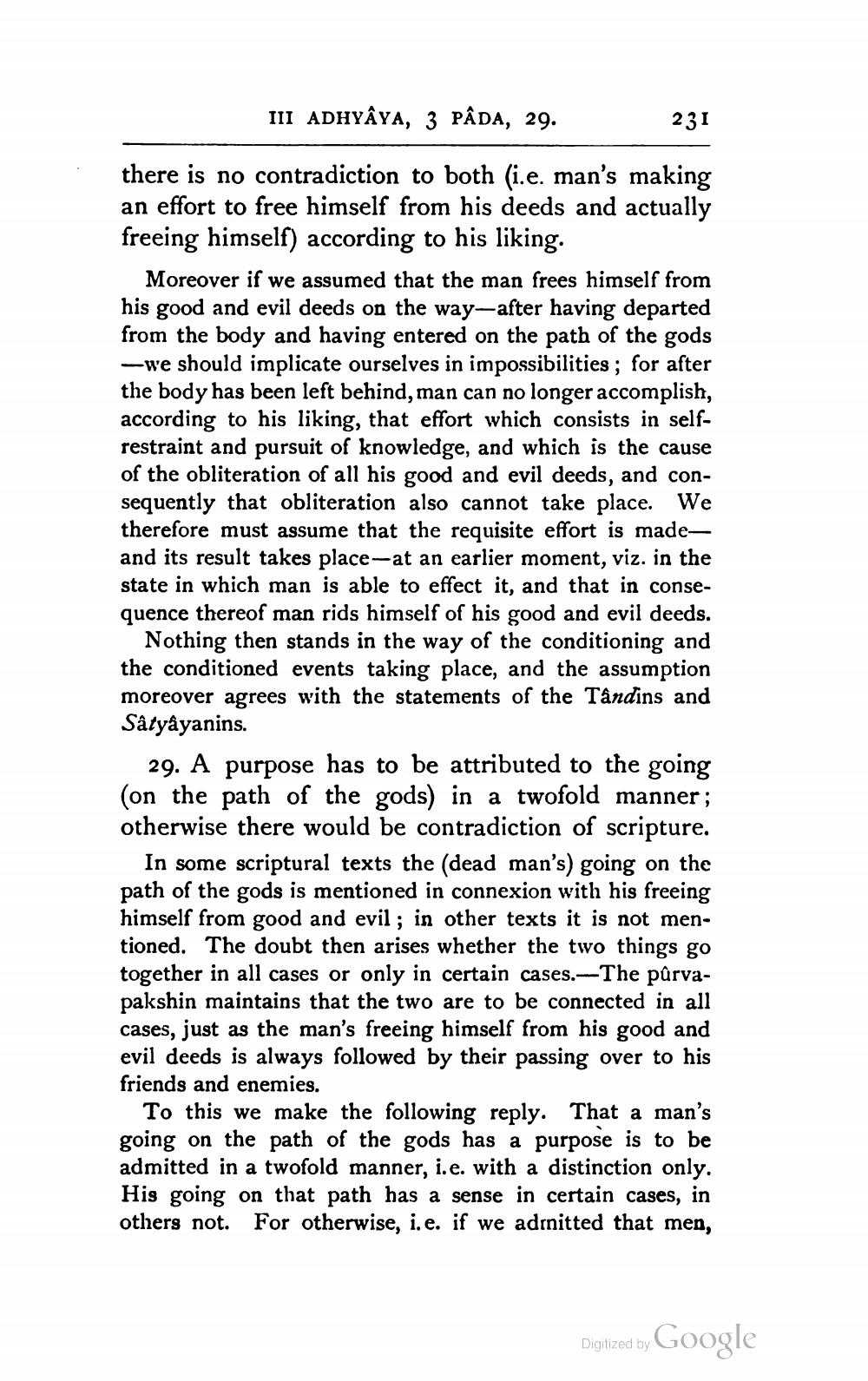________________
III ADHYÂYA, 3 PÂDA, 29.
231
there is no contradiction to both (i.e. man's making an effort to free himself from his deeds and actually freeing himself) according to his liking.
Moreover if we assumed that the man frees himself from his good and evil deeds on the way—after having departed from the body and having entered on the path of the gods -we should implicate ourselves in impossibilities; for after the body has been left behind, man can no longer accomplish, according to his liking, that effort which consists in selfrestraint and pursuit of knowledge, and which is the cause of the obliteration of all his good and evil deeds, and consequently that obliteration also cannot take place. We therefore must assume that the requisite effort is madeand its result takes place--at an earlier moment, viz. in the state in which man is able to effect it, and that in consequence thereof man rids himself of his good and evil deeds.
Nothing then stands in the way of the conditioning and the conditioned events taking place, and the assumption moreover agrees with the statements of the Tandins and Sâtyâyanins.
29. A purpose has to be attributed to the going (on the path of the gods) in a twofold manner; otherwise there would be contradiction of scripture.
In some scriptural texts the (dead man's) going on the path of the gods is mentioned in connexion with his freeing himself from good and evil ; in other texts it is not mentioned. The doubt then arises whether the two things go together in all cases or only in certain cases.-The pûrvapakshin maintains that the two are to be connected in all cases, just as the man's freeing himself from his good and evil deeds is always followed by their passing over to his friends and enemies.
To this we make the following reply. That a man's going on the path of the gods has a purpose is to be admitted in a twofold manner, i.e. with a distinction only. His going on that path has a sense in certain cases, in others not. For otherwise, i.e. if we adrnitted that men,
Digitized by Google




